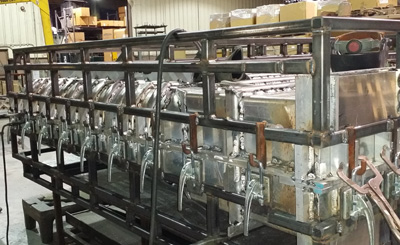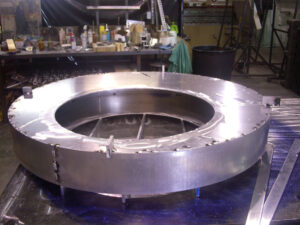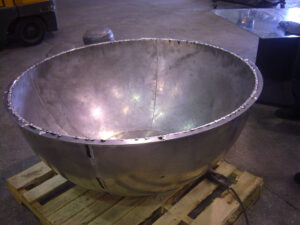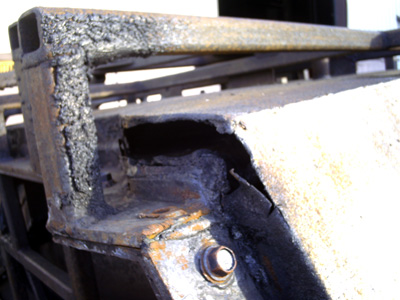Molds for Rotational Molding

Molds for rotational molding can built from a variety of materials, using a wide range of different production processes. Fabricated Steel, Cast Aluminum, Machined Aluminum or even a hybrid of multiple processes can be used to build molds for rotomolding. The molds, or sometimes commonly referred to as ‘tooling’ is necessary for each molded product. The rotomolding process allows for various complex features to be incorporated into the rotational molding design, such as molded in inserts, bushings, structural steel tubing, caster mounting plates, bright color graphics and many other features can be incorporated into the rotational molding design.
The molds necessary for rotational molding production are one of the integral capital investments required for producing rotationally molded products. Most industry leaders in the custom rotational molding sector generally operate their own in-house molds and metals shops where they can build molds for rotational molding, maintain and modify molds, as well as build metal fabrications and components to complement customer’s rotomolded production. Unfortunately as some customers have found out, not every rotomolding company offers in-house tooling repairs or maintenance. Thus, when your tooling cracks, frame work breaks, parting lines get damaged or you just want to make a simple modification to the tool, the less capable supplier will be forced to send your tooling out to another shop to fix! Costing time, loss of sales and production!
 |  |
Rotomolding Tooling Maintenance
A quality focused rotational molding company will continuously address tooling maintenance as the molds come in and out of production regularly. Molds that are built with a focus on quality and long term production will be built with heavy duty frame work, as this helps keep the tooling in good production shape and allows the tooling to maintain significantly better than molds that are constructed with thin gauge tubing, light weight clamps or even nuts and bolt across the parting lines. A molder using heavy duty clamps will go miles further in the long run and keep your tooling running and in better shape overall.
Attention to details, such as mold storage will also go a long way when selecting a rotomolding company for your project. Some molders to elect to haphazardly store molds outside in potential inclement weather conditions were water and moisture can oxidize some materials and actually begin rusting or deteriorating the molds, subjecting them to be in poor condition when it comes time to enter production.

If your tooling is fabricated by Granger Plastics Mold Shop, another advantage is that as long as your tooling is in production at Granger Plastics or a Granger Industries Facility, Granger Plastics will maintain your tooling free of charge. While most other most mold shops will nickel and dime you to death over your tooling expenses such as clamp replacements, sandblasting, mounting plates, small weld repairs, some molders will even charge to store your tooling! Granger Plastics wants your tools in production, producing quality products for you to satisfy your customers, thus making it a prosperous and beneficial relationship for all of us.